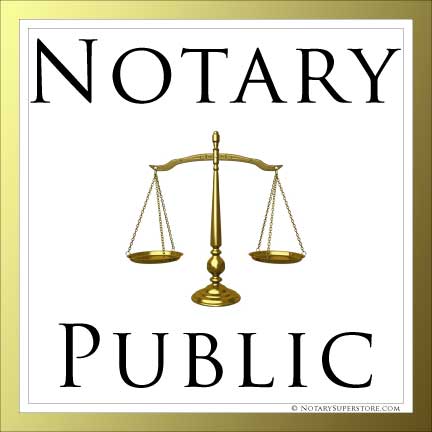Demystifying Notarial Work: Streamlining the Duty and Value of Notaries
Their function, frequently shrouded in enigma for lots of, lugs substantial weight in making sure the credibility and integrity of important documents. By unraveling the intricacies losing and bordering notarial techniques light on the relevance of their acts, a more clear understanding arises of the crucial role notaries play in upholding the fabric of lawful and contractual arrangements.
The History of Notarial Work
Exactly how did notarial job advance with time to become an essential component of legal and organization purchases? The background of notarial work go back to ancient human beings, where scribes played a vital duty in tape-recording crucial information and authenticating documents. As cultures progressed, the demand for an extra formalized system to ensure the credibility of arrangements occurred. This led to the growth of notaries, individuals designated by the state to serve as objective witnesses in legal matters.
During the Middle Ages, notaries acquired prestige in Europe, with their functions broadening to include preparing legal records, licensing signatures, and preserving records. The rise of international profession even more highlighted the value of notarial operate in confirming contracts and contracts throughout borders.
In the modern era, notaries continue to play a vital role in lawful and business deals by validating identifications, confirming the authenticity of papers, and protecting against scams. Their role in accrediting the credibility of contracts adds a layer of safety and depend the ever-evolving landscape of commerce and regulation.

Tasks and Responsibilities of Notaries
The historical evolution of notarial work from old civilizations to the modern period has actually formed the distinct duties and obligations that notaries support in lawful and organization transactions today. Notaries play an important duty in validating the authenticity of files and the identification of signatures. Among their main obligations is to witness the signing of important papers, such as acts, contracts, and wills, to ensure that all parties are entering into agreements knowingly and voluntarily. Notaries additionally validate that signatures are of sound mind and not under duress or threat.
Furthermore, notaries are charged with providing oaths and affirmations, which are vital in legal proceedings and the implementation of affidavits. They license copies of initial documents, providing guarantee to establishments that the duplicates are true reproductions of the originals. Notaries must keep accurate documents of all deals they oversee to make sure openness and liability. Generally, the tasks and responsibilities of notaries are crucial in protecting the integrity and legitimacy of numerous documents and transactions.
Notarial Certificates and Signatures
Exhibiting thorough interest to detail, notarial certifications and trademarks serve as necessary parts in validating the authenticity of legal papers. Notarial certifications normally include vital info such as the day of registration, you could try these out the names of the signatories, a description of the paper, and the notary's main seal. These certifications offer a clear document of the notarial act, making sure that the file can be easily determined and traced back to the notary that looked after the process.
Trademarks play a critical duty in notarial job, as they indicate the contract and approval of the parties entailed. Notaries carefully witness the signing of files to verify the identification of the signatures and verify that they are authorizing of their very own free will. By fastening their main seal and trademark to the file, notaries accredit that the needed treatments have actually been adhered to which the paper is enforceable and legitimate.
Essentially, notarial certifications and signatures are the characteristic of authenticity in legal purchases, giving guarantee to all parties entailed that the documents are genuine and binding.
Relevance of Notarial Acts

Registration Process Described
Describing the registration process provides clarity on the necessary steps associated with confirming lawful records. The registration procedure commonly starts with the specific providing the paper to a notary public. Discover More Here The notary then verifies the signer's identification via appropriate recognition techniques. When the identity is confirmed, the notary guarantees that the private signing the file does so willingly and with no threat.

Conclusion

Notarial certifications generally consist of critical information such as the date of notarization, the names of the notaries, a description of the file, and the notary's official seal. These certificates supply a clear document of the notarial act, making certain that the document can be easily identified and traced back to the notary who supervised the procedure.
By attaching their main seal and trademark to the paper, notaries license that the essential treatments have actually been adhered to and that the record is legitimate and enforceable.
By validating the identification of the signatures, verifying their desire to get in into the contract, and certifying the date and location of the finalizing, notaries play an essential role in upholding the validity of lawful documents.After the paper is authorized, the notary will certainly attach their official seal or stamp onto the document.